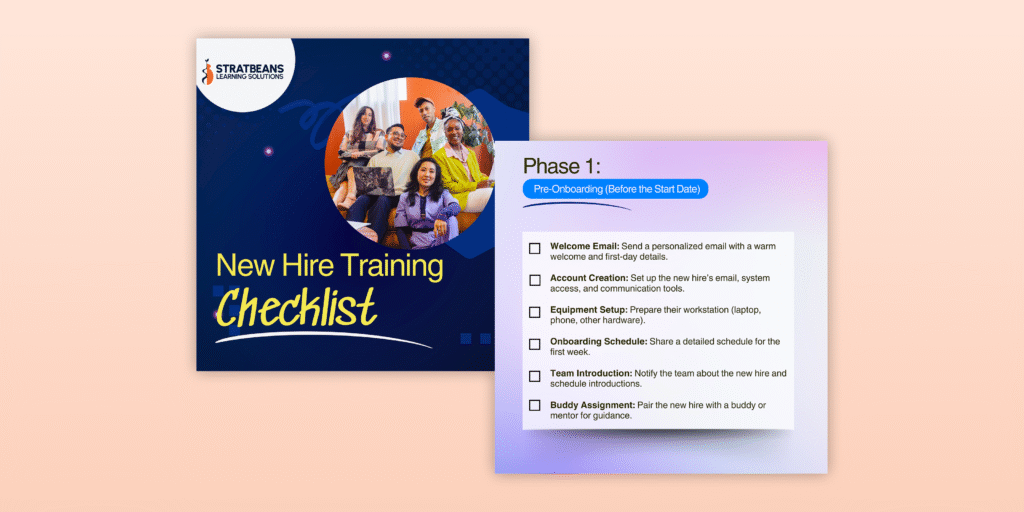New Hire Training Best Practices for Onboarding and Employee Success
Starting a new job is an exciting yet challenging experience. A well-structured new-hire training plan ensures that employees transition smoothly into their roles, equipping them with the essential skills, knowledge, and resources necessary for success. The employee training process not only familiarizes new hires with company policies, corporate culture, and expectations but also enhances team cohesion and employee engagement from day one. An effective new-hire training program aligns employees with organizational goals, fostering a sense of belonging and career growth. Structured onboarding programs improve employee retention rates, reduce turnover, and contribute to long-term productivity.

Overview of New Hire Training
A well-planned training program is a crucial aspect of any company’s hiring process. It ensures that integration into company culture is seamless while minimizing skill gaps and enhancing employee performance.
Importance of Effective Training
An effective employee training initiative provides clear expectations and structured learning to avoid a poor onboarding experience. It helps new employees quickly adapt to their job roles, enhances job satisfaction, and encourages continuous learning. Organizations benefit from improved team dynamics, stronger business activities, and better alignment with common goals.
Objectives of New Hire Training
The key objectives of an employee training program include:
Familiarizing employees with company structure, values, and culture.
Defining job descriptions and responsibilities with clear KPIs.
Developing skills through hands-on training and experiential learning.
Introducing company policies, including code of conduct and workplace culture.
Establishing connections with stakeholders and team members.
Types of New Hire Training
Different training methods cater to various learning styles. The best approach combines multiple methods for an engaging experience.
Onboarding Processes
A successful onboarding process introduces employees to company policies, organizational structure, and business goals. It includes:
Orientation with job descriptions and an employee handbook.
Onboarding checklists with essential tasks and milestones.
Mentorship programs connecting new hires with experienced employees.
Job-Specific Training
Role-specific training focuses on the skills and daily tasks employees need to succeed. It may involve:
Hands-on training for technical roles.
Job shadowing with senior team members.
Soft skills development to improve communication and leadership.
Compliance Training
Compliance training ensures adherence to legal and industry regulations, covering:
Code of conduct and workplace ethics.
Health and safety regulations.
Data protection policies.
Best Practices for New Hire Training
To optimize onboarding programs, businesses should follow these practices:
Structured Training Programs: Define milestones, provide tailored materials, and use feedback loops.
Mentorship and Buddy Systems: Assign mentors to foster career development and cohesion.
Feedback Mechanisms: Use checklists, surveys, and evaluations to track satisfaction and progress.
Adapting for Hybrid and Remote Work: Use virtual sessions and digital learning platforms for seamless onboarding.
Challenges and Solutions
Even well-planned programs face challenges. Recognizing them early ensures success.
Common Obstacles
High turnover due to unclear expectations.
Skill gaps from inadequate training.
Information overload for new hires.
Solutions
Break training into digestible modules.
Use interactive sessions and role-specific training.
Provide comprehensive orientation and onboarding checklists.
Conclusion
A well-executed onboarding process is essential for long-term success. Companies that invest in effective training programs benefit from higher retention, stronger performance, and committed employees.
By leveraging structured new-hire training, businesses can build an engaged workforce, enhance productivity, and support career progression from day one.